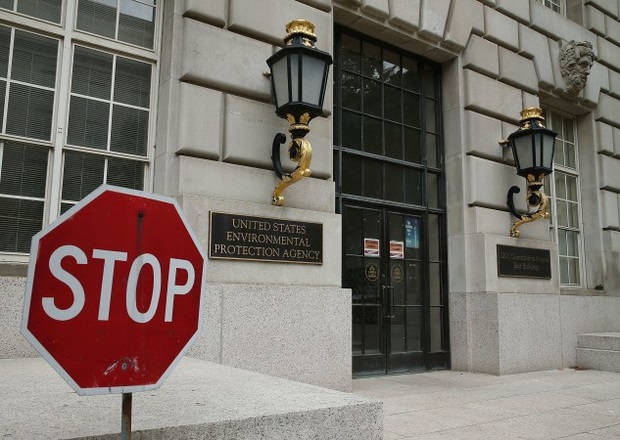Rulemaking Goes Dark During Shutdown Over Spending Standoff
The partial government shutdown over spending for agencies covering homeland security, environmental protection, and other programs is also depriving the public of new information about behind-the-scenes rulemaking at departments that have funding.
Nine major departments and agencies—and the office that reviews all federal regulations—have been shut down since Dec. 22, with some exceptions for employees who conduct critical tasks. Work on non-emergency regulations has stopped in departments and agencies without funding, such as the Environmental Protection Agency.
Don’t look for new information on rules on Regulations.gov, the website that allows the public to comment on pending rules from all agencies. Two other websites, Reginfo.gov and Federalregister.gov, which publish notices and status updates about regulations, also are frozen in place.
“At a minimum, agencies should extend public comment periods for however long the shutdown lasts and should push back comment deadlines that occur during the shutdown,” said Amit Narang, regulatory policy advocate at Public Citizen. “That will ensure the public gets a fair chance to comment and isn’t discouraged from participating due to the shutdown.”

FURLOUGHED WORKERS
Office of Management and Budget Director Mick Mulvaney issued a revised contingency plan for the Executive Office of the President on Dec. 21, showing a total of 691 out of 1,759 employees who could continue working. The OMB’s Office of Information and Regulatory Affairs reviews all significant federal regulations. Out of 488 full-time employees at OMB, about a third, or 161, are able to work during the shutdown, but it is unclear how many of those work in OIRA.
The agency rulemaking process continues for funded or excepted agencies, a senior administration official said in an email to Bloomberg Government. OIRA is providing necessary support to those agencies and activities, consistent with law, the official said.
DELAY LIKELY
The most likely impact of the shutdown on the rulemaking process is delays, said Dan Bosch, director of regulatory policy at the conservative American Action Forum think tank.
Agencies that are shut down are unlikely to be able to publish items until it’s over, so delays in effective dates and in opening public comment periods will occur until those items can be published, Bosch said.
Agencies that have managed to publish items needing public comment, but no longer have funding to open their online comment periods, will likely extend those periods depending on how long the shutdown lasts, he predicted.
NO GUARANTEES
Much of OIRA is furloughed because OMB is part of this shutdown, said Bridget Dooling, research professor at the George Washington University Regulatory Studies Center and former deputy chief at OIRA.
The public probably can still comment on proposed rules with open comment periods, Dooling said.
“It’s possible that agencies could provide additional time, but it’s not guaranteed, and anyone concerned about a comment period would do well to contact the agency directly,” Dooling said.
To contact the reporter on this story: Cheryl Bolen in Washington at cbolen@bgov.com
To contact the editors responsible for this story: Paul Hendrie at phendrie@bgov.com; Robin Meszoly at rmeszoly@bgov.com; Jonathan Nicholson at jnicholson@bgov.com